Rohith Vemula was Not a Dalit; Committed Suicide Because He was Troubled, Says Inquiry Panel
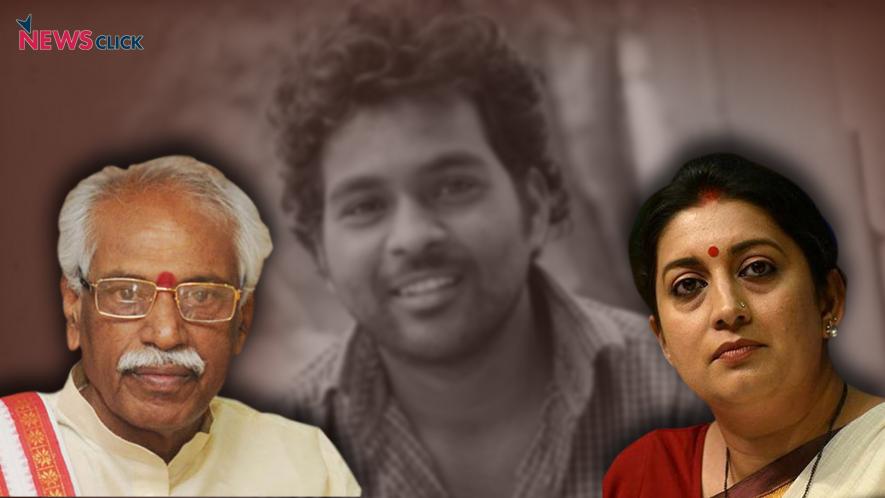
Newsclick Image by Nitesh Kumar
“My birth is my fatal accident”. On January 17, 2016, a brilliant Hyderabad Central University scholar, Rohith Vemula was pushed to commit suicide and left behind a searing note talking of unfinished dreams and how he felt his “birth was his fatal accident”.
Vemula, a Dalit student and a PhD candidate at Hyderabad Central University, had been suspended along with four others, after a complaint by the local unit of the Akhil Bharatiya Vidyarthi Parishad (ABVP), the student wing of the BJP. His fellowship was suspended for more than 7 months, for raising “issues under the banner of the ASA. Vemula found it difficult to manage his expenses, and after removing him and the four other students from their hostel rooms, they set up a tent inside the campus and began a relay hunger strike.
Not being able to bear the humiliation meted out to them, Vemula lost hope and took his life. Many have called it an “Institutional Murder”, as the government machinery was used to settle political scores between two organisations.
After his death, the whole country was awakened with his moving last letter.
The university and the government has since then tried to focus on Vemula’s caste rather than the cause of the tragedy, claiming that he was not a Dalit.
The Ministry of Human Resource Development [MHRD] set up a one-man judicial commission under Justice Ashok Kumar Roopanwal on February 2, 2016, to probe the circumstances that lead to Vemula's suicide.
The report was made public on 15th August 2017 and said, that although Vemula was a troubled individual, he was not a Dalit. "His suicide note is on the record which shows that Rohith Vemula had his own problems and was not happy with worldly affairs," it said. "He was frustrated for the reasons best known to him... He also wrote that he was all alone from childhood and was an unappreciated man. This also indicates his frustration. He did not blame anybody for his suicide”.
The circumstances in the University at the time were not the reason enough for the scholar’s suicide, the probe revealed. In addition, the report indicated that the then HRD minister Smriti Irani and Union Minister Bandaru Dattareya were not responsible for the episode.
Even though Vemula had written a letter to the University’s Vice Chancellor, Appa Rao Podile, expressing his anger at the Dalit issues in the varsity as well as the issue of expulsion, the commission concluded that it had nothing to do with his suicide.
Regarding the disciplinary action taken in the case of Vemula, Justice Roopanwal's report said: "In my opinion, the view taken by the Executive Council was the most reasonable one in the circumstances prevailing at that time. The Executive Council mainly focused that the students should concentrate on their academic career and not on other things. The leniency shown by the Executive Council itself shows that the university administration was not functioning under any influence or pressure, otherwise there could be no occasion to be lenient or to reduce the punishment recommended by the Proctorial Board."
The report also said that if he would have been angry with the decision of the university, certainly either he would have written in specific words or would have indicated in this regard. "Vemula did not do the same. It shows that the circumstances prevailing in the university at that time were not the reasons for committing the suicide." the report said.
Read the full report here.
The question that now arises is: Why the commission is discussing Rohith Vemula’s caste? Wasn’t it their job to just examine the circumstances and facts which lead to his death and bring the perpetrators, if any, to justice? The commission was mainly created to review the functioning of the grievance committee and had to suggest mechanisms for improvement. Then why do the Commission’s final findings dedicate four pages out of 12 to whether Rohith was a Dalit?
Rohith’s letter to the Vice chancellor in December 2016, in which he wrote about the caste discrimination and asked for cyanide and rope for Dalit students, has been completely ignored by the report. Instead, it has questioned the deceased’s family background and caste. The Commission has observed that the university's equal opportunity cell is not functional. And yet it doesn't explore why the grievance redressal committees are ineffective. Or how they could be made better.
Attached below are trails of letters proving the direct involvement of MHRD under Smriti Irani in the suicide of Rohith Vemula:
1) Letter dated 10th August, 2015, to Bandaru Dattatreya written by Nandanam Diwakar, brother of Susheel Kumar, Vice President, BJP, Ranga Reddy District.
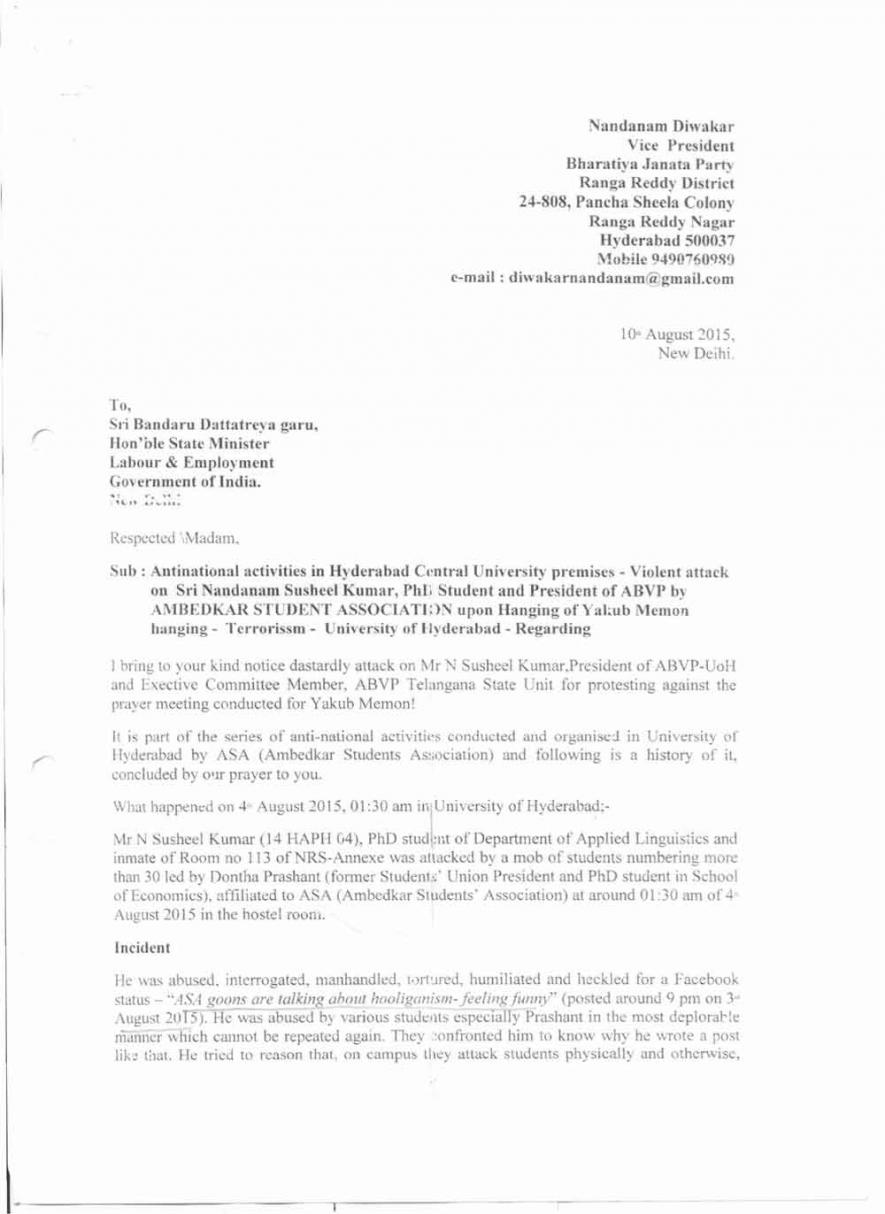
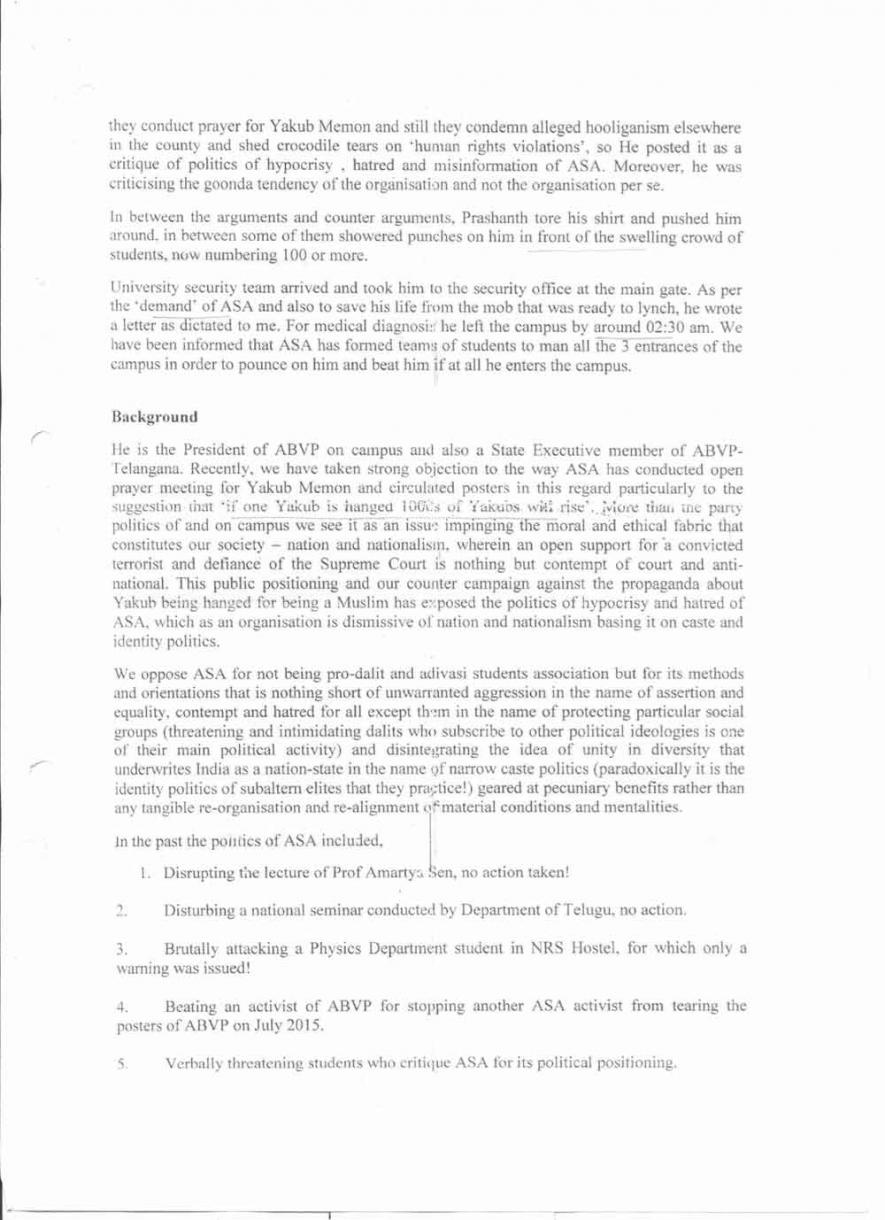
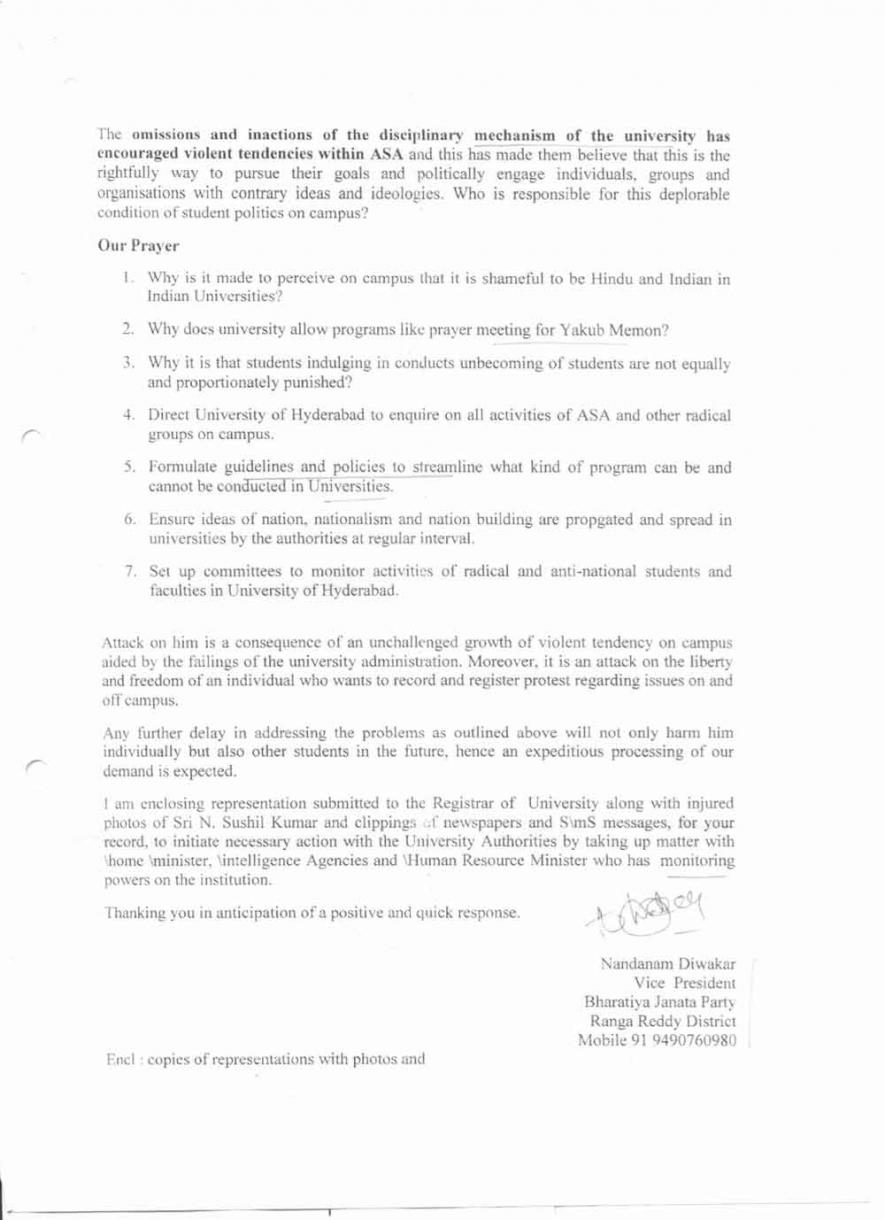
2) Letter dated 17th August, 2015, from Bandaru Dattatreya, MoS to Smriti Irani, MHRD, detailing his idea of 'Anti-national activities' of ASA.
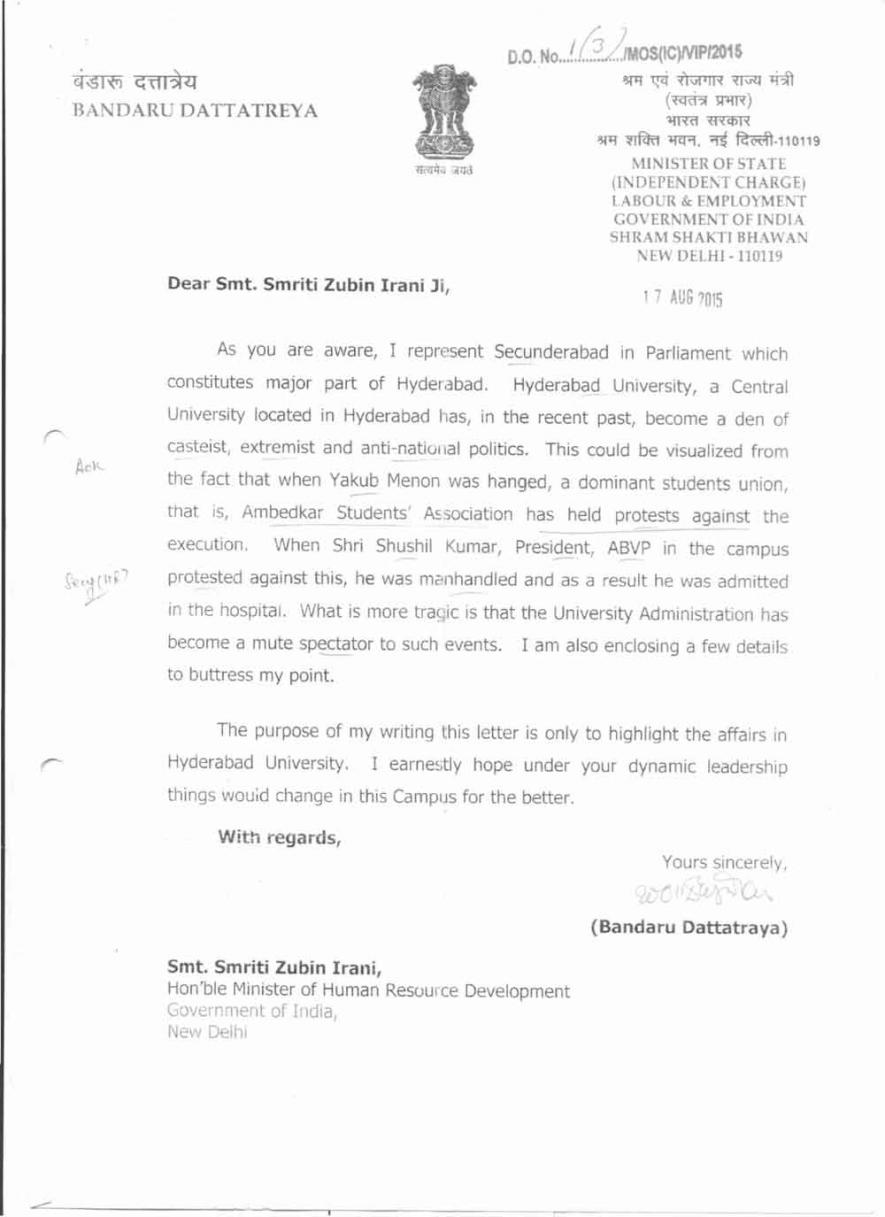
3) Letter dated 3rd September, 2015 from MHRD office referring to comments by Bandaru Dattatreya, Mos for Labor and Employment.
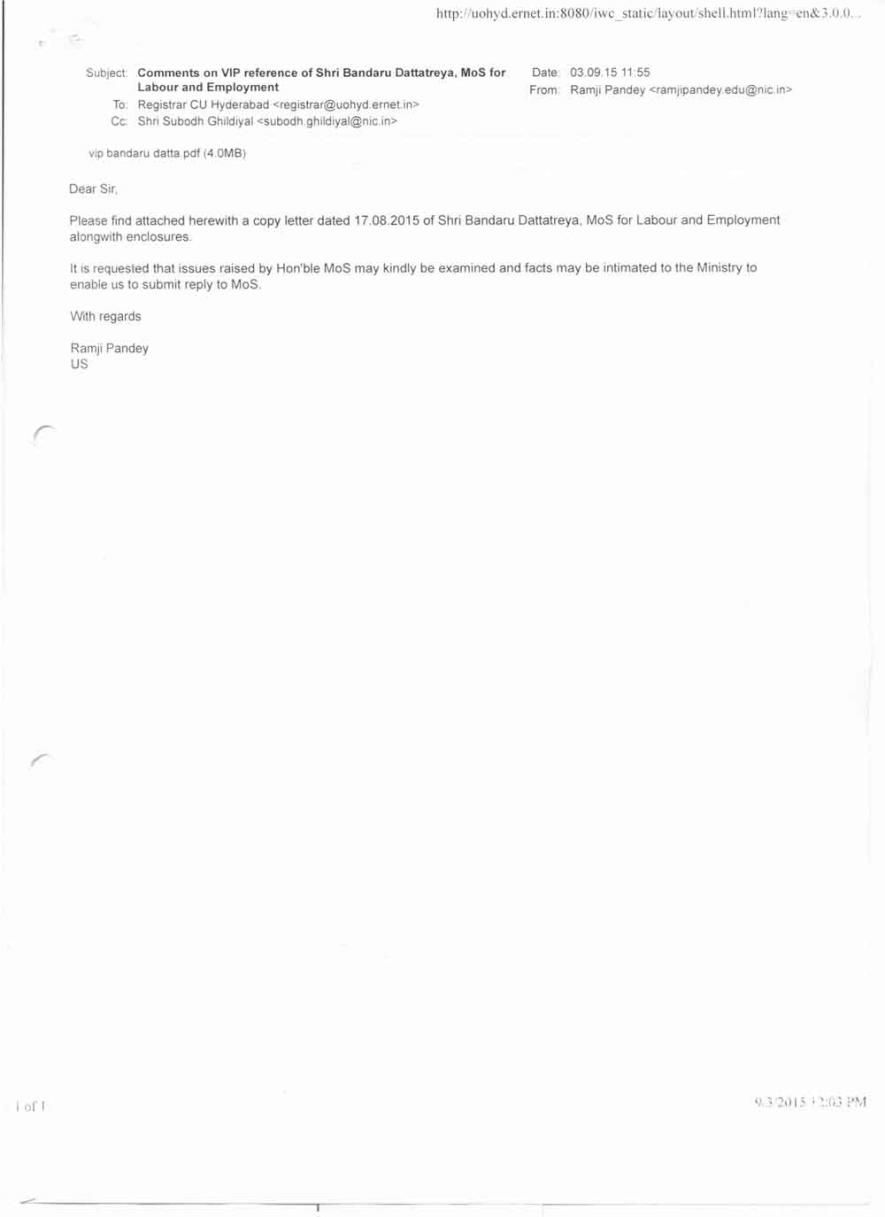
4) Second Letter from MHRD dated 24th September, 2015, sent as reminder, signed by Deputy Secretary to the Govt of India.
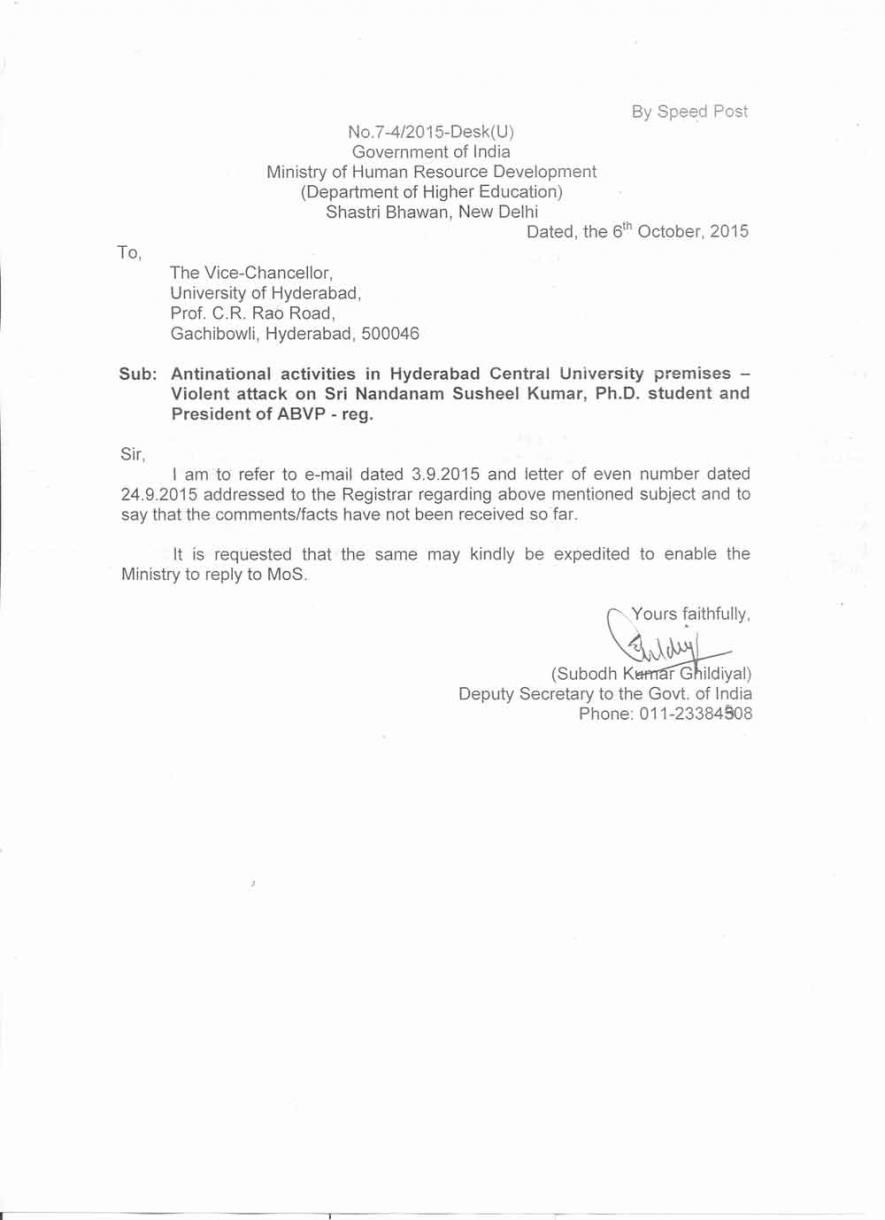
5) Third Letter from MHRD dated 6th October, 2015, signed by Deputy Secretary to the Govt of India.
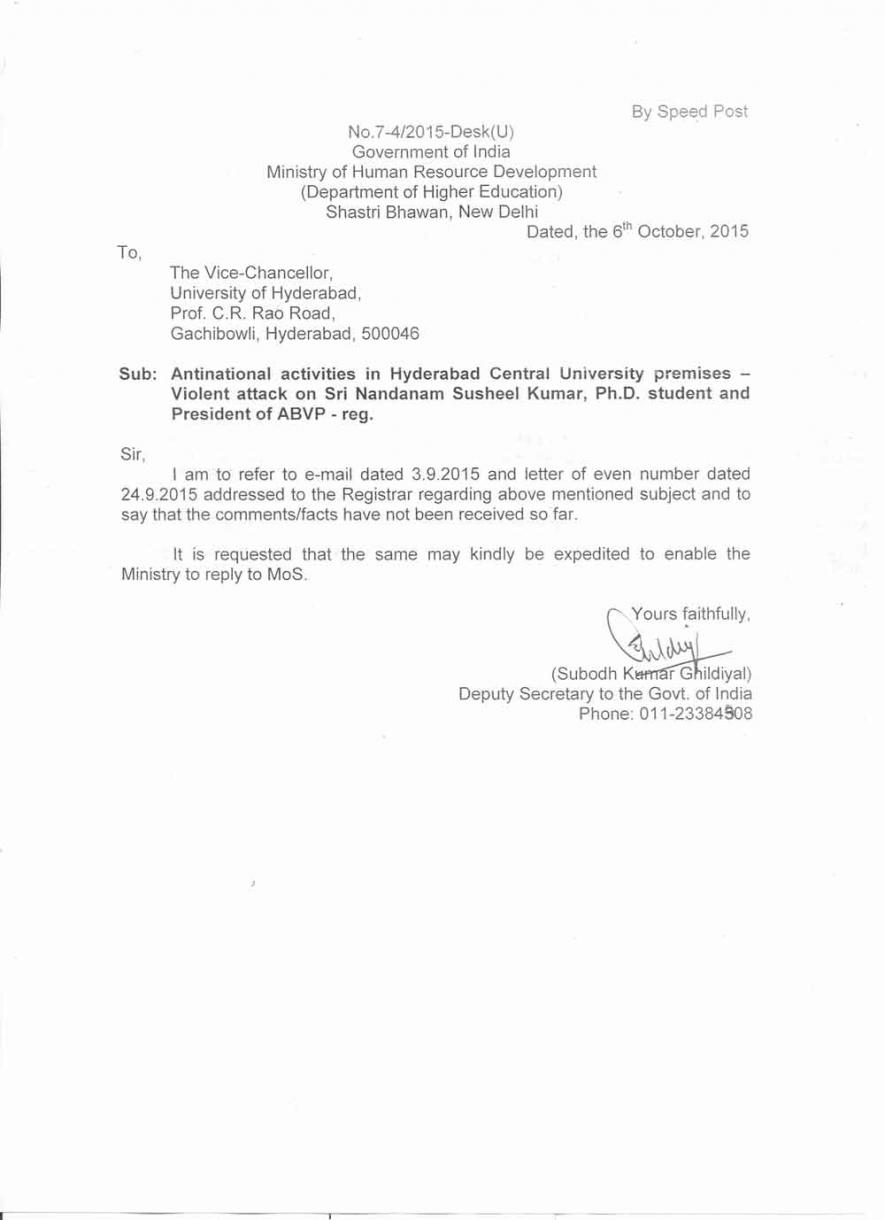
6) Fourth Letter dated 20th October, 2015, signed by Joint Secretary, MHRD.
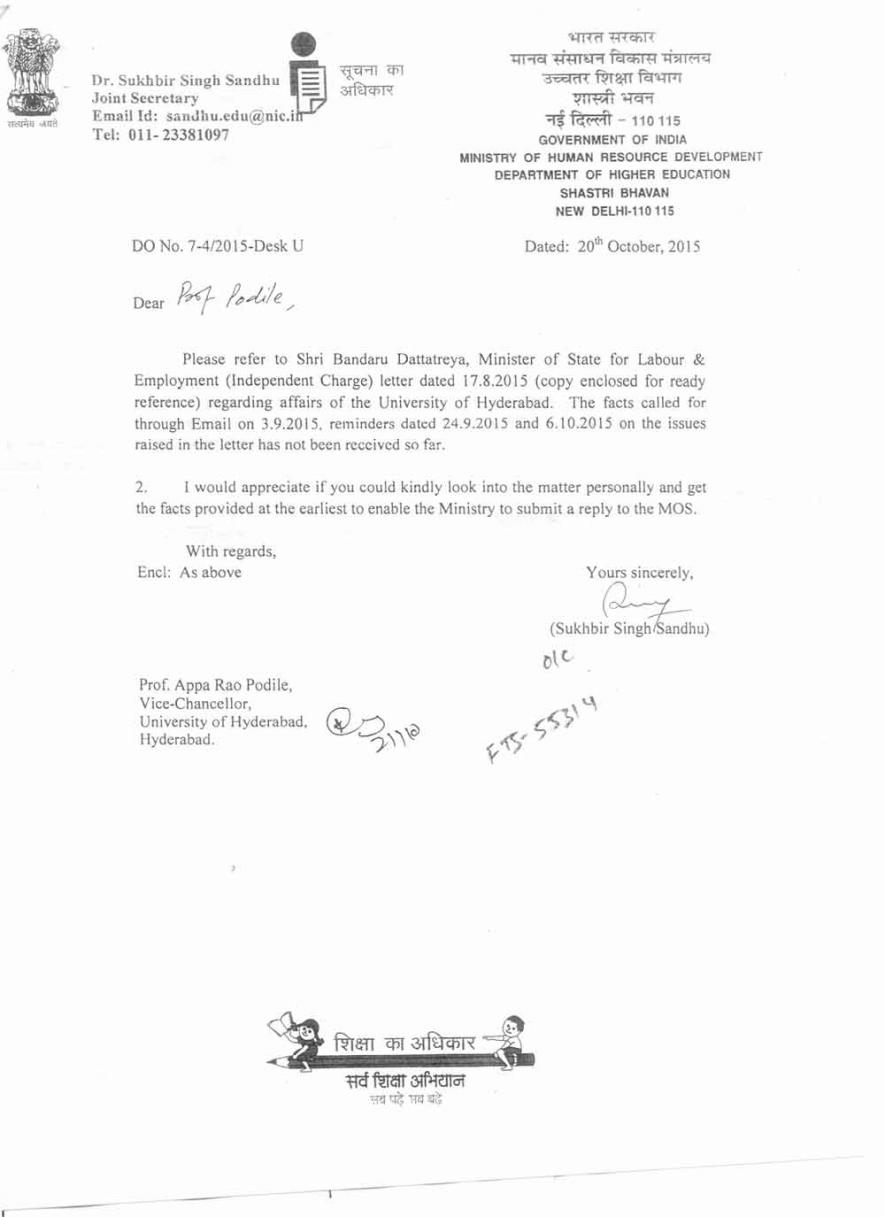
7) Fifth Letter from MHRD dated 19th November, 2015, signed by Under Secretary to the Govt of India
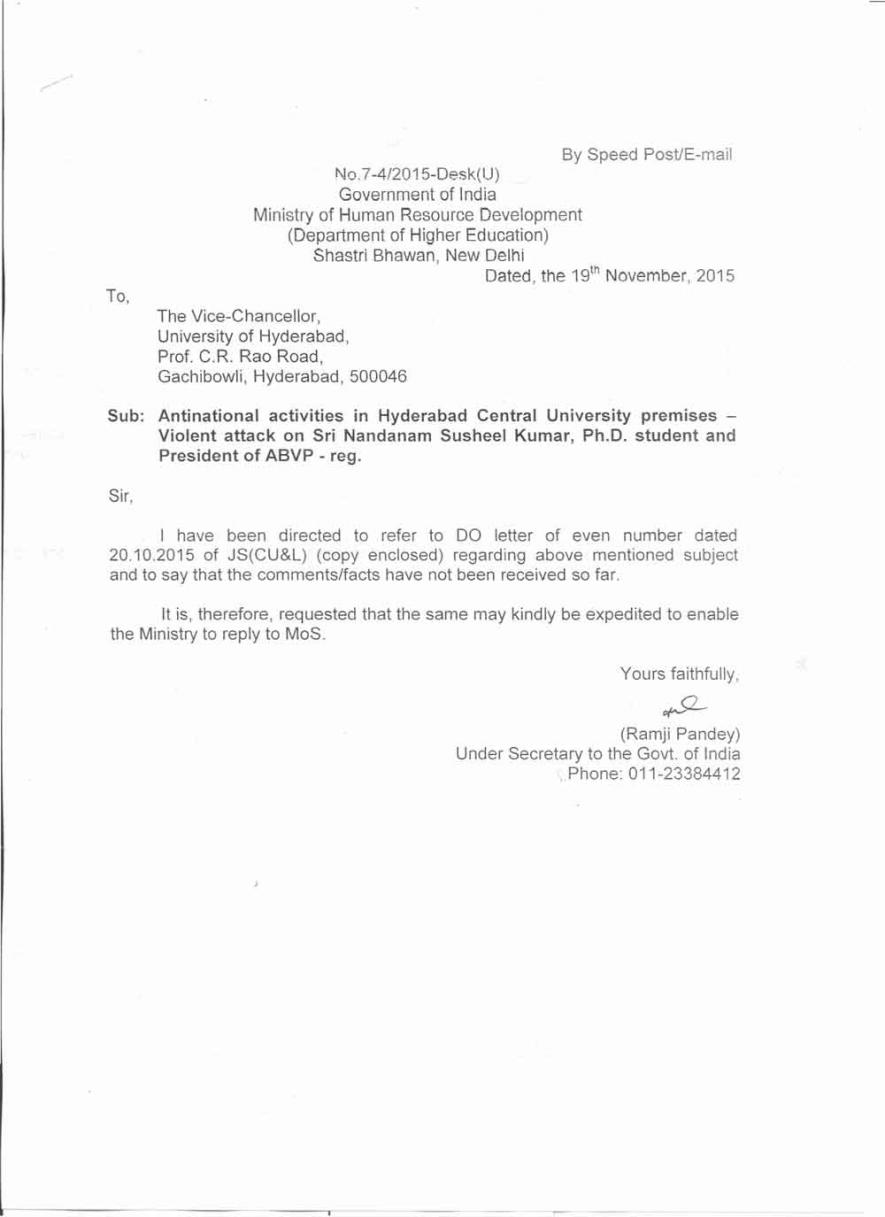
8) Rohith Vemula’s letter to the VC, dated 18th December, 2015.
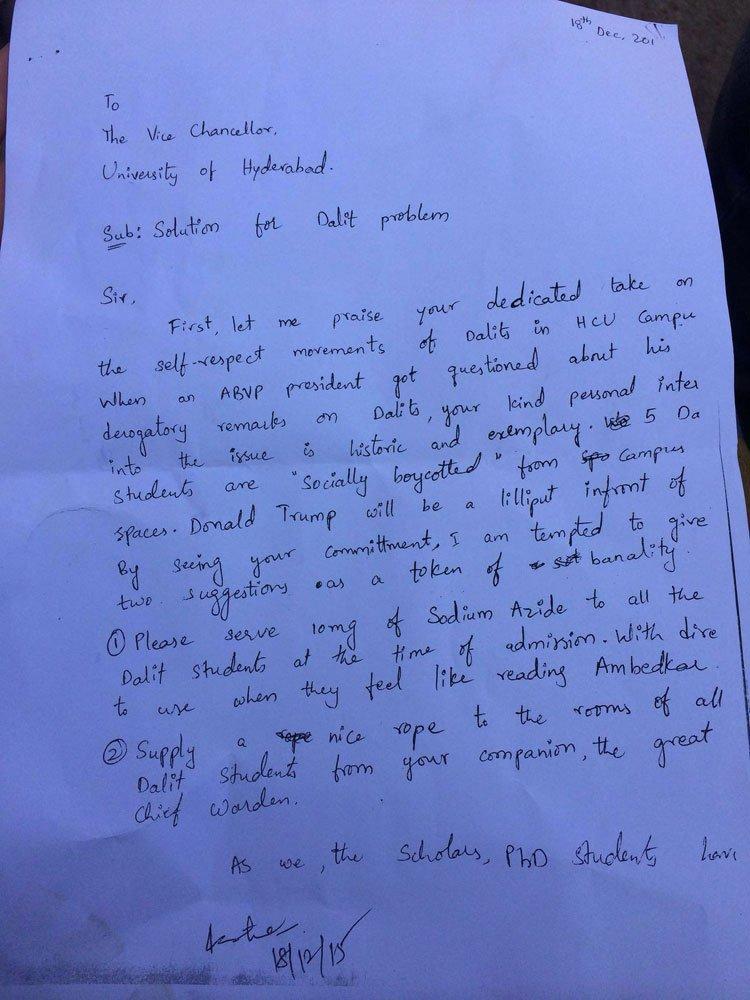
Get the latest reports & analysis with people's perspective on Protests, movements & deep analytical videos, discussions of the current affairs in your Telegram app. Subscribe to NewsClick's Telegram channel & get Real-Time updates on stories, as they get published on our website.























